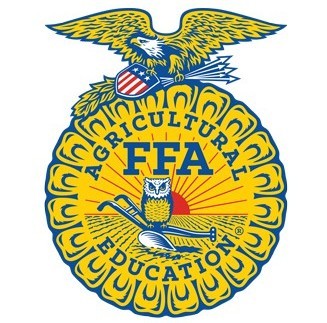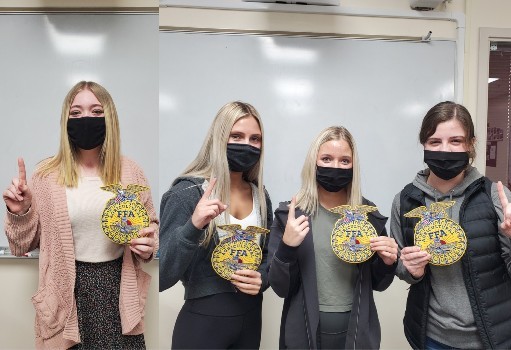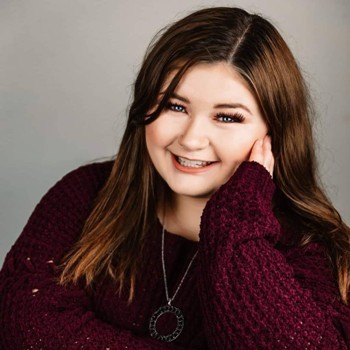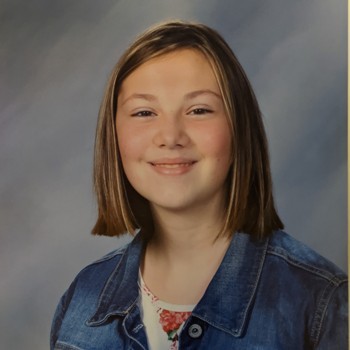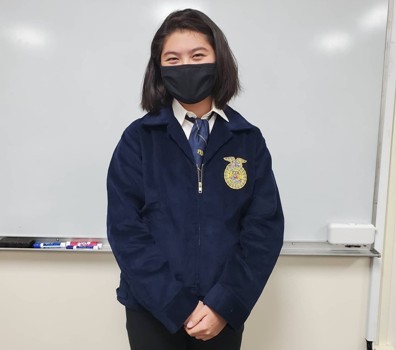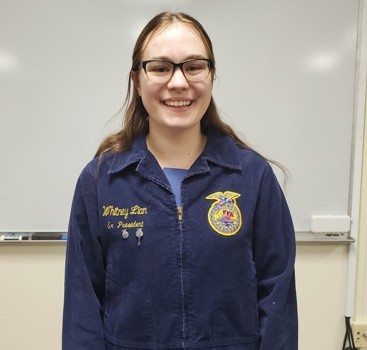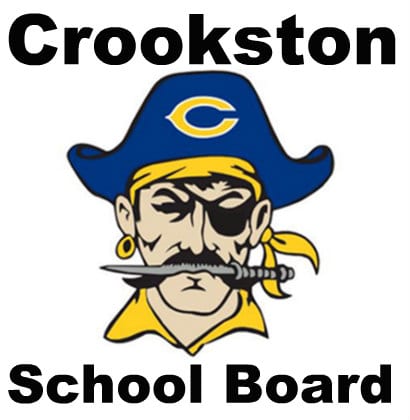Crookston High School teacher Whitney Rupprecht is leading the district’s new ag program, and students are already reaping the benefits of the FFA program at the high school. In its first year, several students have already qualified for the state FFA competition in various focus areas.
Rupprecht said that students in FFA are exposed to a wide range of topics and focuses on finding their passion. “FFA used to stand for Future Farmers of America,” said Rupprecht. “But in 1988, the name changed to the National FFA Organization to show that FFA is more than just plows, sows, and cows. Right now, FFA reaches the realm of leadership with speaking, parliamentary procedure. They go into the cows so that we can judge cattle, dairy, cheese. If you’ve ever watched Napoleon Dynamite, the onion milk is one of our contests. But then, we also have things like natural resources, wildlife, some ag mechanics stuff. It really is just about anything, so students can really find their passion within the organization.”
All students enrolled in an ag program class at the school are members of the FFA organization, meaning the program reaches more than 200 CHS students. “The program is 7-12, which is awesome,” said Rupprecht. “We teach 7th-graders the basics – the history behind FFA and what is the whole purpose. They will learn about SAEs or Supervised Agricultural Experiences, which sounds kind of scary and I feel like there are way too many acronyms, but essentially, they are going to have to do a project outside of school that is ag-based for 10 hours. That student, if they already have a dog, could train their dog and learn that. They could get a job somewhere, work at a farm, volunteer. It really encompasses just about anything, but it’s really giving students those life skills that you need that sometimes schools are lacking, like how to get a job.”
Crookston students are already finding success in FFA, with several making it to the state competition, including the Food Science team of Kenze Epema, Dani Haake, Emily Funk, and Jasmine Haglund. “They took a food science and safety test which was all about foodborne illnesses and pathogens,” said Rupprecht. “They did a food practicum. They were given a food company that is going to hire them. They had to create the food product, ensure that it was safe, come up with a nutrition label and a package. And they had to make some customer inquiries – if a customer were to write a complaint to a company, how would you respond in that manner.”
Some students have been able to advance to the state competition through individual projects such as Alyssa Schwede (Employment Skills), Victoria Proulx (Prepared Public Speaking), Linnea French (Extemporaneous Speaking), and Bailee Klinnert (Small Animal Vet Science). “On our employment skills with Alyssa, she had to write a resume and cover letter,” said Rupprecht. “She had to complete a job application, do a mock interview over Zoom, which is not as fun as you might think. And she also had to write a follow-up thank you letter. Prepared public speaking with Victoria, she had to write a seven-to-nine-minute speech related to agriculture. Her specific topic was about canned and processed food and the health impacts they have. She gave her speech and then had follow-up questions for five minutes. Linnea had extemporaneous speaking is the complete opposite. She walked into my classroom the day of and was given three topics. She got to choose one and had 30 minutes to prepare a six-to-eight-minute speech. Small Animal Vet Science is all about dog and cat breeds, domestic fish. Not northern pike, but more this is a blackmoor goldfish or a guppy, and then, taking some practicums on anatomy and body parts.
Also finding success are the Landscape team of Libby Salentine, Claire Oman, Josslyn Leach, and Carter Nelson and the Wildlife team of Riley Helgeson, Tim Brule, and Malakai Hanson. “We’ve also had our Wildlife team advance to state,” said Rupprecht. “That’s the identification of birds, mammals, fish, and insects in Minnesota. And some practicums on that. Our landscape team is all about landscape, plant identification, and some basic geometry.”
For more on FFA at Crookston High School, tune in to Focus on Education this Saturday at 8:35 a.m.
